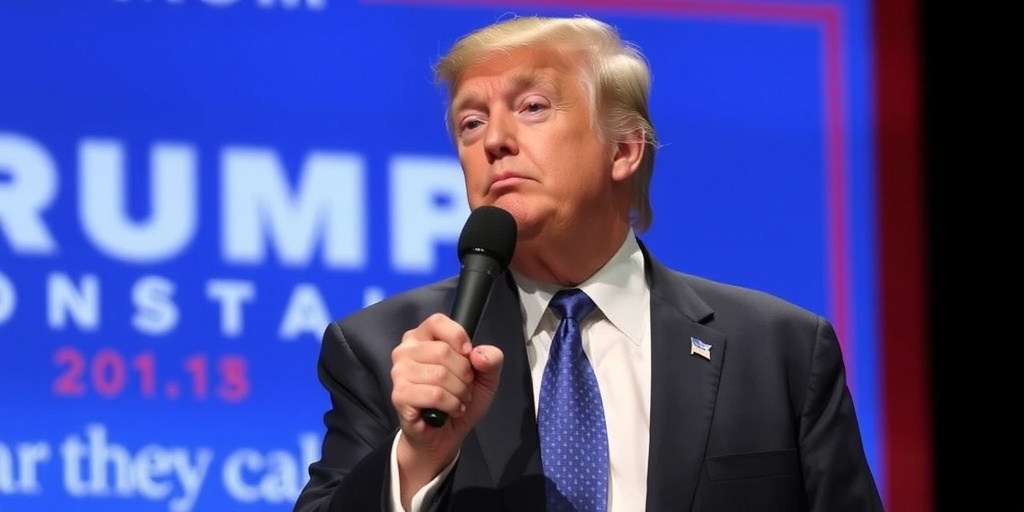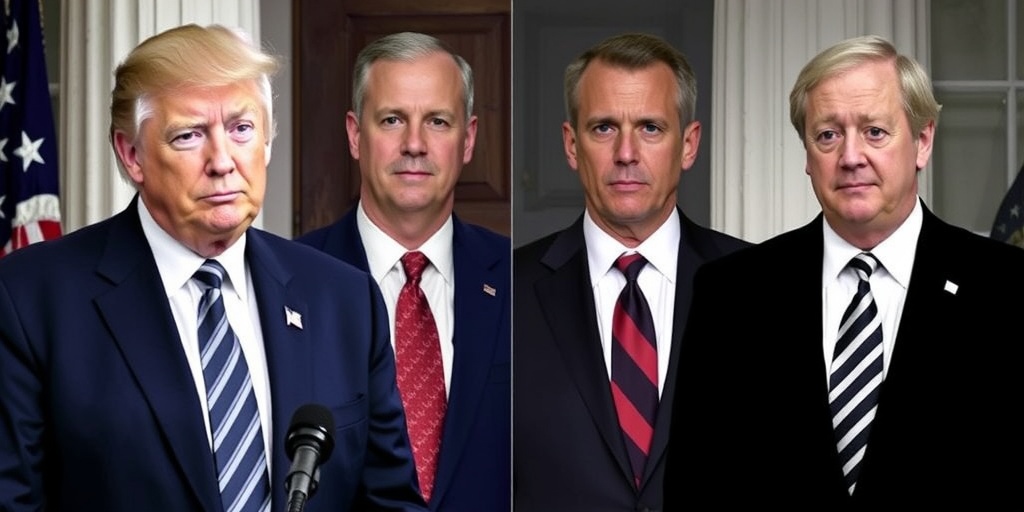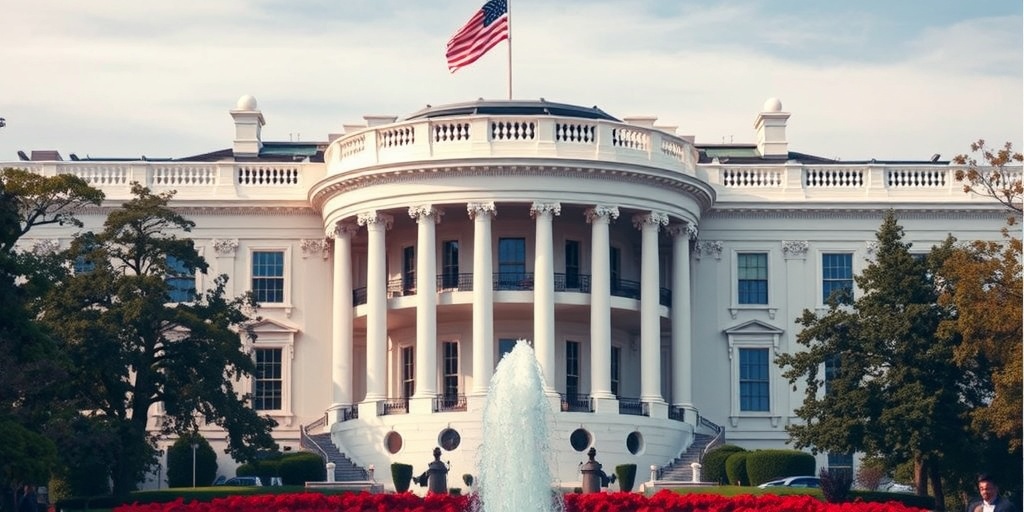Now Reading: Trump Claims Losing Election Would Have Led to a ‘Very Nasty Life’
-
01
Trump Claims Losing Election Would Have Led to a ‘Very Nasty Life’
Trump Claims Losing Election Would Have Led to a ‘Very Nasty Life’

Trump Reflects on Legal Battles and Presidential Campaign in Miami Summit
At an investment summit in Miami on Wednesday, former President Donald Trump made headlines with candid remarks about the implications of losing the presidential election. He stated that it would have resulted in a “very nasty life” for him, acknowledging the significant legal challenges he faced during his campaign. Trump described the scenario of losing the election as "dangerous," hinting at the potential repercussions, including the possibility of jail time due to his ongoing legal battles.
“It was dangerous, actually very dangerous,” Trump elaborated when discussing his thoughts on the potential outcome of the election. His comments underscore the complex interplay between his political aspirations and legal predicaments, reflecting a sentiment that has been echoed by his advisers throughout the campaign. Trump’s comments mark a rare public acknowledgment of the stakes he faced, revealing that, beyond aiming for the presidency, he was also campaigning for his freedom.
The ramifications of the election were not lost on Trump. He emphasized that the election meant much more than securing political power. Upon winning, the former president noted that the Justice Department abruptly dropped two federal cases against him, and a judge in Manhattan issued an unconditional discharge related to his controversial hush money case. In this context, Trump’s electoral victory served as a buffer against potential criminal liability, illustrating how intertwined his political fortunes were with his legal woes.
When prompted about how he would spend a year if he were granted a sabbatical, Trump diverted from the question, expressing his honor at being president. He remarked that running for election again required “a certain amount of courage,” highlighting the personal risks involved with his candidacy. His comments also reveal a certain resilience and determination, as he appeared undeterred by the challenges, expressing a deep commitment to his role.
In an unusual moment of self-reflection, Trump compared his treatment as president to historical figures such as Andrew Jackson and Abraham Lincoln, who both faced significant challenges during their presidencies. Despite the significant trials they faced, he asserted, “Nobody was treated like me. Nobody,” framing himself as a uniquely persecuted figure in American political history. This assertion brings into focus the narrative Trump has cultivated around his presidency, positioning himself as a victim of unfair treatment by political opponents and the media.
Throughout the campaign period, Trump faced an overwhelming number of criminal charges spread across four separate cases. These legal issues range from charges related to the January 6th, 2021, Capitol riots to allegations surrounding his mishandling of classified documents post-presidency. Notably, one case involving the classified documents was dismissed by a Trump-appointed judge, although this ruling is currently under appeal by the special counsel, Jack Smith.
In addition to these federal cases, Trump encountered legal challenges in Georgia, where he and several associates were charged with attempting to overturn his 2020 election loss. Furthermore, in New York, Trump faced a guilty verdict in a hush-money case that could potentially result in a four-year prison sentence. These legal challenges have not only occupied his time but have also shaped his political strategies and public messaging.
As Trump continues to campaign for the presidency, the specter of these legal issues looms large, influencing both his political narratives and his supporters’ perceptions. His latest comments in Miami not only shed light on the former president’s mindset but also serve as a reminder of the high stakes involved in his campaign. The intertwining of politics and law is likely to remain a central theme in the narrative surrounding Trump as he navigates the path to the election.
During a period of intense scrutiny and adversity, Trump’s remarks indicate a complex blend of defiance and vulnerability. His experiences as a candidate resonate deeply with a portion of the electorate, many of whom share sentiments of disenfranchisement within the political system. As he gears up for further campaigning, it remains to be seen how these legal troubles and historical comparisons will play out in shaping both his narrative and political fate.
Trump concluded his reflections by reiterating, “There’s nothing I’d rather do,” reinforcing his commitment to his campaign despite the numerous hurdles he faces. The landscape leading to the next election will undoubtedly be marked by ongoing legal battles, making Trump’s journey to the presidency as contentious as it is compelling.
Stay Informed With the Latest & Most Important News
Previous Post
Next Post
-
 01New technology breakthrough has everyone talking right now
01New technology breakthrough has everyone talking right now -
 02Unbelievable life hack everyone needs to try today
02Unbelievable life hack everyone needs to try today -
 03Fascinating discovery found buried deep beneath the ocean
03Fascinating discovery found buried deep beneath the ocean -
 04Man invents genius device that solves everyday problems
04Man invents genius device that solves everyday problems -
 05Shocking discovery that changes what we know forever
05Shocking discovery that changes what we know forever -
 06Internet goes wild over celebrity’s unexpected fashion choice
06Internet goes wild over celebrity’s unexpected fashion choice -
 07Rare animal sighting stuns scientists and wildlife lovers
07Rare animal sighting stuns scientists and wildlife lovers





















